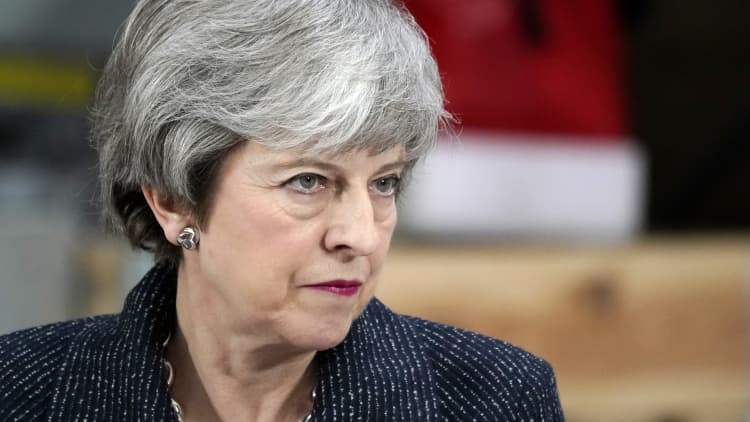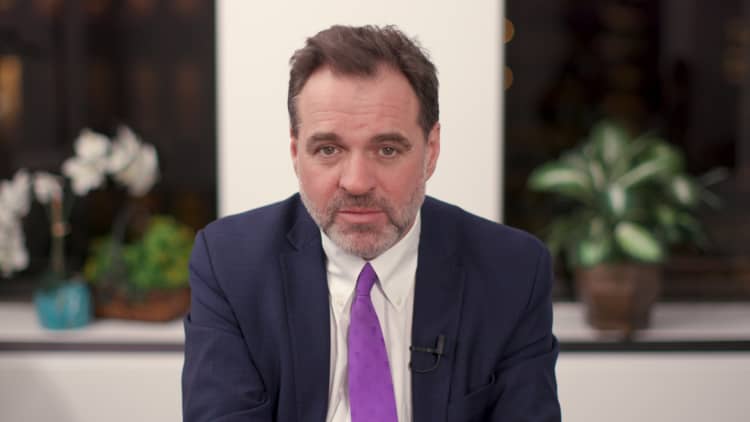
British Prime Minister Theresa May has announced she will step down as the leader of the United Kingdom if her Brexit deal finally secures a majority in Parliament, allowing a successor to take the lead on future negotiations with the European Union.
"I am prepared to leave this job earlier than I intended in order to do what is right for our party and country," she said at a meeting of a powerful lobby of Conservative lawmakers known as the "1922 Committee," according to media reports.
One attendee of the meeting, Conservative lawmaker James Cartlidge, told BBC News that May was not prepared to stay on and negotiate the U.K.'s future relationship with Europe.
"My recollection is that she said she would not remain in the post for the next phase of negotiations, the implication being that once the Withdrawal Agreement has passed, she would make way for someone else."
British lawmakers have twice already refused to sign off on May's Brexit "Withdrawal Deal" and the first rejection marked the biggest U.K. Parliament defeat in modern political history. It's expected she will attempt to bring a third vote to Parliament in the coming days.
May's timetabled departure is seen as key for securing a switch in votes from the right-wing euroskeptic element in her party who want a different leader to take the reins for the next stage of negotiations with Europe.
Heavy jostling between Brexit-supporting Conservative lawmakers to become Britain's next prime minister is now predicted.
The leadership battle comes at a time of massive political uncertainty for the U.K., as Westminster continues to wrestle with the result of the June 2016 Brexit referendum which saw the British public vote to leave the European union.
May's time in charge
May's premiership has lasted nearly three years after she won the race to succeed David Cameron, becoming the U.K.'s second female leader, after Margaret Thatcher.
The 62-year-old began the official process of withdrawing the U.K. from the European Union, triggering Article 50 in March 2017.
The following month, she announced a snap general election with the aim of strengthening her hand in Brexit negotiations. That move backfired as the number of Conservative Party MPs (members of parliament) actually fell, forcing her government to operate on a confidence and supply deal, securing votes from the Democratic Unionist Party of Northern Ireland.
In December, May won a vote of confidence in her leadership of the Conservative Party by 200 votes to 117.
May's minority government has witnessed 29 resignations in a little over two years. That's more than the 25 ministerial resignations that Thatcher suffered in almost 12 years and the same amount as Tony Blair's government accrued in more than a decade.
The daughter of a vicar, May attended Oxford University where she studied geography.
She was first elected as an MP in the 1997 general election and rose to become home secretary before becoming prime minister. Previously she had worked at the Bank of England.
WATCH: Niall Ferguson: Brexit has turned into a student asking for a paper extension



